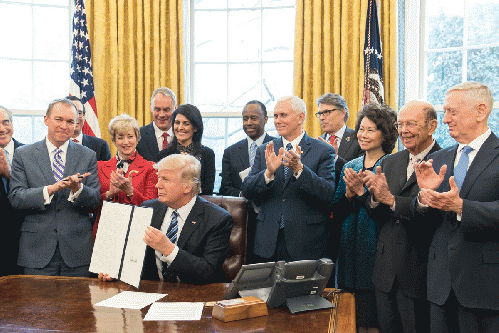
Cabinet meeting in White House
(Image by (From Wikimedia) Office of the President of the United States, Author: Office of the President of the United States) Details Source DMCA
I was recently reminded of how memory can get blurred over time, erasing facts in favor of vague impressions. When I mentioned to a thirty-something woman several months ago that I was eager to see the Broadway musical Cagney she looked puzzled and asked, "Who is Cagney?" Then she thought a minute and said, "Oh, wasn't he a famous gangster who killed a lot of people?"
No. James Cagney was an actor who played gangster roles. He was also a delightful song and dance man, beloved by generations of moviegoers.
My young friend's memory managed to dig up a connection between crime and Cagney, but she got the facts wrong.
Memory and history matter in other ways too. Here's an example from the recent HBO production All the Way, about President Lyndon Baines Johnson (LBJ).
In a remarkable scene in the Oval Office, Johnson, lobbying for the passage of his 1964 civil rights bill, thrusts his face close to that of Republican Senate Minority Leader Everett Dirksen, and says: "We're making history here, Everett. And you have to decide how you want history to remember you."
Dirksen was vigorously opposed to the bill as it stood and wanted to water it down with forty amendments, but he took to heart LBJ's advice about his legacy. He and other Republican senators whom Dirksen persuaded voted to end the filibuster, enabling the historic bill to pass in the senate 73 to 27.
Trump and his army of sycophants do not seem to care about how history will remember them. They may be encouraged to disregard their legacies by gloating about their ability to rationalize their lies and hypocrisies with deceptive arguments that their base relishes. History will not be so generous.
(Note: You can view every article as one long page if you sign up as an Advocate Member, or higher).





